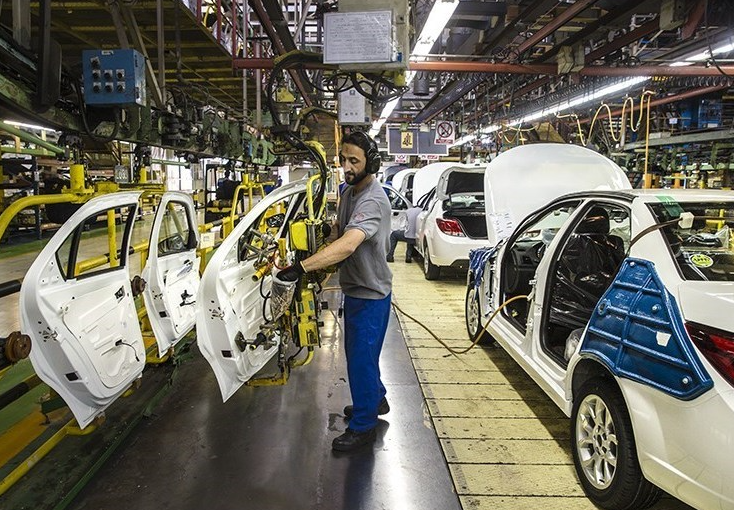March 25, 2022

Some of the cars produced in Iran have seen hardly any improvement in standards for more than 20 years, Abolfazl Khalkhali, the head of the electric vehicle design team at the University of Science and Technology, has told the publication Donya-ye Khodro.
“Apart from Tara and Shahin, most of the other domestic cars do not have safe bodies, because their design structure and architecture are old,” he said.
Car bodies are produced domestically from molds that can only be used to produce a certain number of vehicles. But he said the molds are often used much longer than intended, since designing and building new molds is expensive. The result is that parts don’t join up properly.
He said if automakers want to make another mold for the roof, they have to spend 100-200 billion rials (about $360,000-$720,000). If the firm doesn’t make a new mold, the “gap” and “flush” have lost their accuracies. The gap is the horizontal separation between two surfaces and the flush is the vertical displacement.
He said that in Iran, a five-millimeter gap for cars is standard. But this figure is only 1 millimeter in well-known global brands. “Therefore, the amount of gap in domestic cars is five times higher than for foreign brands,” he said.
“Our national standards are based on European standards and the most important is the face-to-face collision standard known as R94 and the side-by-side collision standard known as R95. When these two standards are tested, there is a test dummy inside the car that helps gauge the pressure experienced by the head, knees, chest, etc. during a collision,” he said.
“As the test is expensive, automakers conduct the test only once for each product. Unfortunately, some of the cars sold in this country do not undergo this test even once, while others have failed this test. What’s more, some of the cars that have passed the test are different from the models undergoing mass production.”
In the last eight years, no high-quality vehicles have been produced in Iran, the head of the Institute of Standards and Industrial Research of Iran (ISIRI) said recently. Mehdi Eslampanah added that nine standards were suspended under the previous government, which led to a decline in vehicle quality.
“ISIRI is responsible for developing this system, but we are not responsible for what happens during the designing and production stages,” Eslampanah was quoted as saying by car.ir.
Supervisors determining vehicle safety standards include the General Command of Iran’s Law Enforcement Forces, Industries Ministry, ISIRI, Department of Environment and Iran Fuel Conservation Company.
Automakers are mandated to produce vehicles per defined standards. But, according to the ISIRI chief, there are many violations of standards in the auto industry.
Eslampanah said steel sheets used in domestic vehicles are not subject to mandatory standards. “Interestingly, the car gear number is subjected to mandatory standards, but the vehicle’s body and steel plates are not subject to mandatory standards,” he said.
Currently, the Iran National Standards Organization does not approve of the steel sheets used in car bodies by domestic producers, the Financial Tribune reported.
The official added that even if domestic car production adhered to standards, there is no control over the use of low-quality parts in the after-sales service network. “In the last two weeks, we tracked and disbanded one of the largest gangs injecting smuggled recycled disks into the distribution network and after-sales service by faking the standard emblem and packaging. In such cases, there is no supervision at all,” he said.
“We have created a market monopoly in which there is no competition and the consumer has no choice but to buy or pre-order [low-quality and high-priced vehicles and parts].”
